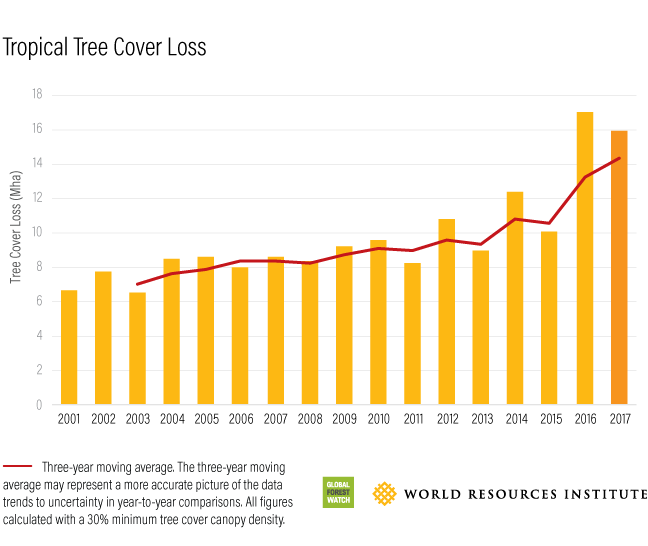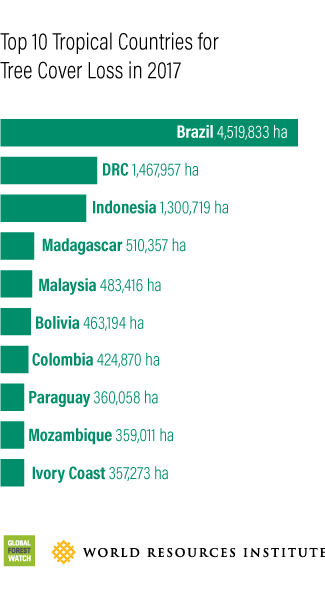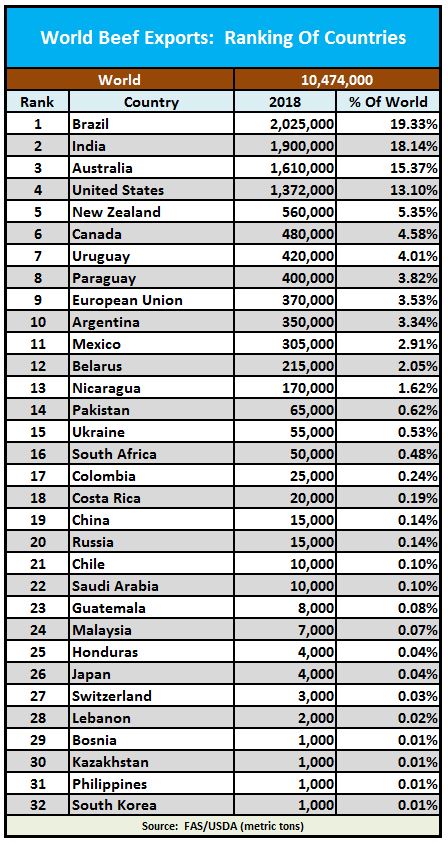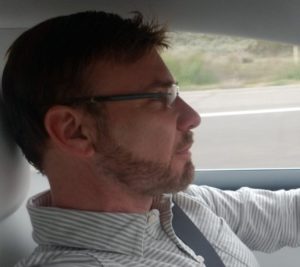It was not until I was studying Biology at college that I became aware of how significant the problem of global climate change was. For me, a kid who grew up blissfully ignorant of the problems of the world, it was one of those moments that has stayed with me through my life. What happened that day was in the realm of ecology. Our class was shown video clips from a 1988 “Global Survival Conference“ held in Oxford, England.
James Lovelock stated that we need to slow down on what he referred to as the three deadly C’s – cars, cattle, and chainsaws. “You don’t have to be a puritan and ban them, just use them moderately” was his advice. He was referring to the destructive forces of combustible engines, the inefficient waste of natural resources in feeding the planet, and the devastation of the rainforests.
Then, either Lovelock or Carl Sagan – I don’t remember which, they both were so inspiring to me – said that the rain forest was being cut down at the rate of 1 acre per second. That really hit me. Every second going by was another acre of rain forest lost! The complex ecology of a rain forest is too much for this short article, but it would take 150 to 200 years for a rain forest to regenerate if it was replanted.
These two pieces of information were like a one-two punch to my blissful ignorance and I’m grateful for having been woken up.
Like many of us, I have tried to do what I can but real change needs to come from the top. I had been disappointed seeing the government do little to respond and had even been in despair seeing the government doing the opposite of what was needed, influenced by short-term greed. Then I started learning more about what Tesla, the car company, is doing. The more I learned about the mission of Elon Musk and Tesla, the more I started having real hope. At one point, as I realized the change may have to start with ethical businesses and consumers, I tweeted a photo I took while sitting in my car of the Tesla “T” logo with my statement: “To me this is a symbol of hope!”
I am lucky enough to see this in front of me every day.
— wade (@WadeAndersonPT) December 7, 2018
To me this is a symbol of hope!
Thank you @elonmusk pic.twitter.com/aduyIfiSLe
Elon
Musk liked the tweet at the time. I am not sure if he understood
what that really meant to me, but he took notice.
Flashing
back to what I learned from seeing those clips of the Global Survival
Conference: the planet is a living organism and it’s
not well. It doesn’t
matter what country you live in or how wealthy you are. No one is
safe. We need something that will make a real difference to give us
hope.
We are a part of nature, the oxygen we breathe is from marine plants and trees. If we are destroying nature, we are destroying ourselves.
In such a living system species are expendable. If a species, such as humans, adversely affects the environment, then in time it will be eliminated – with no pity than is shown by the microbrain of an ICBM on course to its target. If the Earth is like this, then to survive we face the hard task of reintegrating creation, of learning again to be part of the Earth and not separate from it. – James Lovelock
Now flash forward to what inspires my hope: knowing what Elon and Kimbal Musk are doing to provide a solution to those “three deadly C’s”.
Electric cars are important,
solar energy is important,
stationary storage of energy is important
– Elon Musk
Cars – The First of Lovelock’s 3 C’s
We must accelerate the transition to sustainable energy and that is why Tesla matters. According to the Tesla website, they have saved over 3,500,000 tons of CO2 with their Tesla vehicles. Tesla is working hard to bring electric vehicles mainstream, to make them affordable for everyone, but they cannot do this alone. There needs to be more automotive manufacturers making a serious commitment in this arena because our global climate crisis cannot be solved by them alone. If all we have is Tesla, we are still headed toward irreversible climate change. Elon Musk has said “the momentum toward sustainable energy is too slow“. There are over 1 billion passenger cars on the road today all over the world. Without more government incentives, it seems like an impossible task to create needed change. Governments provided incentives which benefit gasoline cars through fossil fuel subsidies of $0.6 trillion. If electric vehicles were subsidized by more governments, we could make this transition to sustainable energy much more quickly.
Having said all of that, we would not be having this conversation about electric cars at this point in time if it was not for Elon Musk and Tesla. Elon Musk is tackling one of the three deadly C’s full force despite all of the constant attacks against him. He appears to work harder than is humanly possible, because it really is that important!
Capture and Convert – Throw in a couple more C’s for the benefit of survival
While electric cars replace our need for one fossil fuel, solar energy is a 100% clean alternative to reliance on another fossil fuel that is very detrimental to our environment and survival – coal. In addition to Tesla’s electric cars they have a solar division and produce energy storage systems. Tesla has been on the forefront of this change and other industries are starting to notice. Now that the cars have reached a base price within reach of many more people, Tesla is focusing on driving solar prices down too. Carl Sagan suggested solar energy as possible future energy sources back in 1988. Thirty-one years later, Tesla is now creating affordable solar options. Their current goal is to get the price under $2/watt which is significantly lower than any other competitor. With prices that low, there does not seem to be a valid reason not to have solar.
“We’re really playing a crazy game with the atmosphere and the oceans. We are taking vast amounts of carbon out of the ground and putting this in the atmosphere. This is crazy and we should not do this, it is very dangerous.” –Elon Musk
During that 1988 conference, Carl Sagan stated: “To keep warm, to provide light, to secure energy for industry, humans have hit on the idea of burning fossil fuels… A consequence of burning the carbon in fossil fuels is to combine it with oxygen in the air to make carbon dioxide… it is significantly opaque in the infrared part of the spectrum. The temperature of the Earth is determined by the balance between the amount of visible light that strikes and is absorbed by the ground and the amount of infrared radiation that the ground is able to radiate away to space. If the atmosphere becomes more opaque in the infrared, that radiation to space is impeded, the heat is held in and the temperature of the Earth increases.”
“Why run this crazy experiment where we take trillions of tons of carbon from underground and put it in the atmosphere and oceans, this is an insane experiment, this is the dumbest experiment in human history.” –Elon Musk
Tesla’s developments in solar technology have produced state of the art panels and storage devices for homeowners, businesses, and utilities which have generated enough electricity to equal the entire annual residential electricity consumption for every inch of the state of Connecticut. That’s a big impact and that measurement was made four months ago. Just those installations that were measured will produce enough energy to power Washington DC in it’s entirety for almost a decade.
“The more carbon we take out of the ground and add to the atmosphere, and a lot of it gets permeated into the oceans, the more dangerous it is.” – Elon Musk
A reminder of why it’s important to accelerate advent of cars powered by electricity made from solar power https://t.co/sbjSZOeF4c
— Elon Musk (@elonmusk) October 9, 2018
Tesla exists to help reduce risk of catastrophic climate change, which affects all species on Earth. Even if your faith in humanity is faltering, this is worth caring about. Support makes a difference. Thank you.
— Elon Musk (@elonmusk) October 12, 2018
Cattle – The Second of Lovelock’s 3 C’s
The world is full of humans and we all need to eat. Food is obviously critical to our health and survival. But what’s involved in producing that food and getting it to the people is where things happen that work against both our health and survival. Farmers in industrial countries tend to rely on harmful chemicals and practice farming techniques that make the land less sustainable. Transporting food over long distances greatly enlarges the carbon footprint involved in production. The environmental footprint of raising livestock is painfully huge. One pound of beef requires over 50 pounds of grain and about 4,000 gallons of water. Think of how inefficient that is! Add to that: about 30% of our land surface is currently used for livestock farming and constitutes 18% of greenhouse gas emissions that are produced by humans.
“Livestock farming has a vast environmental footprint. It contributes to land and water degradation, biodiversity loss, acid rain, coral reef degeneration and deforestation. Nowhere is this impact more apparent than climate change – livestock farming contributes 18% of human produced greenhouse gas emissions worldwide. This is more than all emissions from ships, planes, trucks, cars and all other transport put together.” — Francis Vergunst and Julian Savulescu
That estimated 1 acre per second of deforestation that was stated at that 1988 conference is now at an alarming rate of 2 to 2.5 acres being lost per second. At this rate it is possible they will be gone in the lifetime of our grandchildren.


So what is Tesla doing about this? Nothing. But Kimbal Musk is Elon’s brother. He serves as my model for stewardship addressing the second “C” – cattle. He has been operating restaurants called Next Door Eatery. According to their website:
While we like to have a positive impact on our community, we don’t like to leave footprints, so that’s why do everything we can to minimize our impact on our local communities. It’s also smart business.
- We are on our mission to be zero-waste. We’re almost there.
- We are proactively putting an end to using plastic straws, nationwide.
- Our extensive kegged wine program eliminates wine bottles, corks and shipping weight, saving tens of thousands of glass bottles a year.
- We use water- and energy-efficient dishwashers with a focus on earth friendly chemicals.
In addition to that statement, what they don’t mention is the impact they are having on reduced beef consumption. They have a 50/50 burger which is 50% crimini mushrooms and 50% beef. In addition to that being a 50% reduction for each burger eaten, they also provide the vegan “Impossible Burger” on their menu.
They work with local farmers to provide real food and not factory farmed food.
“Real food is the new internet means that young entrepreneurs getting into food today, where they’re bringing real food that just taste much better. That’s food that you trust to nourish your body, trust to nourish the farmer and trust to nourish the planet is the opportunity of our generation”. – Kimbal Musk
Chainsaws – The Third of Lovelock’s 3 C’s
If you’re over the age of 9, you probably know that we rely on green plants for much of our oxygen, something critical to biological life on this planet. The third C in Lovelock’s alliteration is chainsaws, meaning deforestation, the destruction of green plants. Cattle, Lovelock’s second C, is again a big culprit for this because – ready for some logic? – beef is the most popular meat in the world and most of it – almost 20% – comes from Brazil. That’s where the earth has had the benefit of the rich supply of oxygen that the Amazon basin – that’s a BIG rainforest – has provided. I already spoke, above, about how fast the rainforest is getting chopped down. Seventy percent of that deforestation of the Amazon Basin can be attributed to cattle ranching. In fact, according to the USDA, over two million metric tons of beef got shipped out of Brazil last year. With that being an 11% increase of the previous year, the world’s beef consumption is not going down. Someone’s got to do something!

.
Just as his brother Elon is doing things to make it easier for the world to wake up and respond to the need to shift away from fossil fuel consumption that leads to climate change, Kimbal Musk is doing that with both cattle and chainsaws. And with the government of Brazil offering billions of dollars in loans to support the expansion of its beef industry, I’m hoping more and more people wake up and do something.
Conclusion
Where does all this information take you? It moves me to take action. Which is a big reason that I’m doing this blog – to help wake people up to do something so we don’t go off the cliff it looks like we’re heading towards. What can you do? – do your own research to see what are the issues leading to climate change and do anything else that risks our survival or quality of air, water, or health; inform others of the situation we face (but do it in ways that empower rather than discourage); and take direct action, yourself, to reduce your carbon footprint, use less fossil fuels, eat less red meat, pressure our government and others to pass incentives that support rather than destroy the natural world we rely upon, and make sure every decision you make – of what to buy and what to do – has its own environmentally ethical footprint.
“I think you have tremendous power – you have the power to make change, governments respond to popular pressure.” – Elon Musk
Tesla, Elon Musk, and Kimbal Musk model for me right action and the intelligence, innovation, and courage to give the situation we face practical and effective responses. Let’s be aware, smart, passionate, and responsive, ourselves, and follow their lead.
Here is what Bill Nye the Science Guy had to say about climate change on a recent episode of the Last Week Tonight with John Oliver:
In case you wondered how carbon pricing works, here is a short video about it. pic.twitter.com/vxn0gEZDvo
— TeslaSocial.com (@TeslasocialC) May 18, 2019
The planet is on fire! pic.twitter.com/g8PRSpAtx8
— TeslaSocial.com (@TeslasocialC) May 18, 2019
Thanks to my friend Jim Lehrman for his help and support while I wrote this story

Tesla Social is mostly about the social aspects of the Tesla community. There are many stories that bring the community together and have fun. Do you have a story to share?
email: wade@teslasocial.com
Also don’t forget to subscribe to the YouTube Channel


Wade Anderson is a Model 3 performance owner, he runs the Tesla Social website and YouTube channel.
